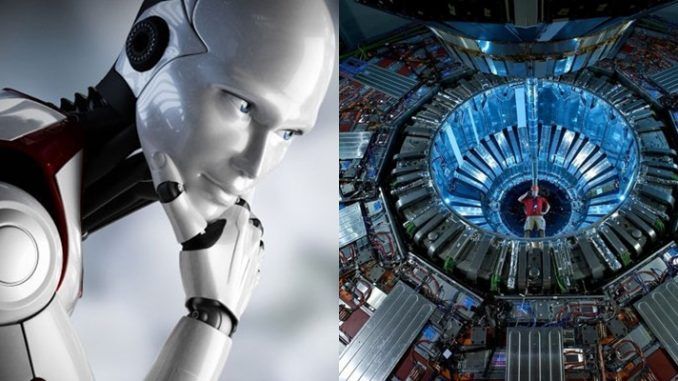
CERN scientists are depending on artificial intelligence (AI) to keep their computer networks safe from hackers.
A massive global network of computers allow CERN and the Large Hadron Collider to better understand the nature of the universe at the world’s largest particle physics laboratory astride the Franco-Swiss border near Geneva.
Scientists are now using machine learning to teach an AI system to protect the CERN grid while they study the basic constituents of matter – the fundamental particles.

BYPASS THE CENSORS
Sign up to get unfiltered news delivered straight to your inbox.
You can unsubscribe any time. By subscribing you agree to our Terms of Use
The Daily Sheeple reports:
Machine learning just entered the realm of cyber warfare with secret A.I. sentinels that monitor networks to ensure active/real time cyber combat against its foes.
“As CERN goes, so does the rest of the world”? so they say…
CERN deploys advanced AI to protect against hackers. Futurism reports:
It is the job of any cybersecurity effort to detect unusual activity and identify possible threats. Of course, systems can look for known code worms and viruses, but malware changes too fast for humans to keep up with it. This is where AI and machine learning comes in. CERN scientists are teaching their AI system to distinguish between safe and threatening behavior on the network and take action when it detects a problem.
A UNIVERSE OF DATA
CERN is home to the Large Hadron Collider (LHC) as well as its massive computer grid. Scientists use the LHC to study high-speed collisions between subatomic particles — in 2017 alone, they collected an estimated 50 petabytes of data about these particles. CERN provides this critically important data to universities and laboratories around the world for research.
The LHC and CERN itself require a massive amount of data storage and computing power, which is what prompted the creation of the Worldwide LHC Computing Grid. The grid connects computers in more than 40 countries from more than 170 research facilities, and works like a power grid to some extent, providing computing resources to facilities based on demand. This presents a unique cybersecurity challenge: keeping the massive globally-distributed grid secure while maintaining the computing power and storage unimpeded.
Machine learning can train a system to detect potential threats while retaining the flexibility that it needs to provide computing power and storage on demand. F-Secure senior security researcher Jarno Niemelä told Scientific American that the biggest challenge for the project will be developing algorithms that can accurately distinguish between normal and malicious network activity without causing false alarms. For now, the AI upgrades are still being tested. If they work well protecting just the part of the grid that ALICE (A Large Ion Collider Experiment) uses, the team can deploy AI cybersecurity measures throughout the system.
Edmondo Burr
CEO
Assistant Editor
Latest posts by Edmondo Burr (see all)
- Police Arrest Suspect In Supermarket Baby Food Poisoning - October 1, 2017
- Seoul Secures Data From Electromagnetic Interference By N Korea - September 30, 2017
- The ‘World’s First Internet War’ Has Begun: Julian Assange - September 30, 2017


Be the first to comment